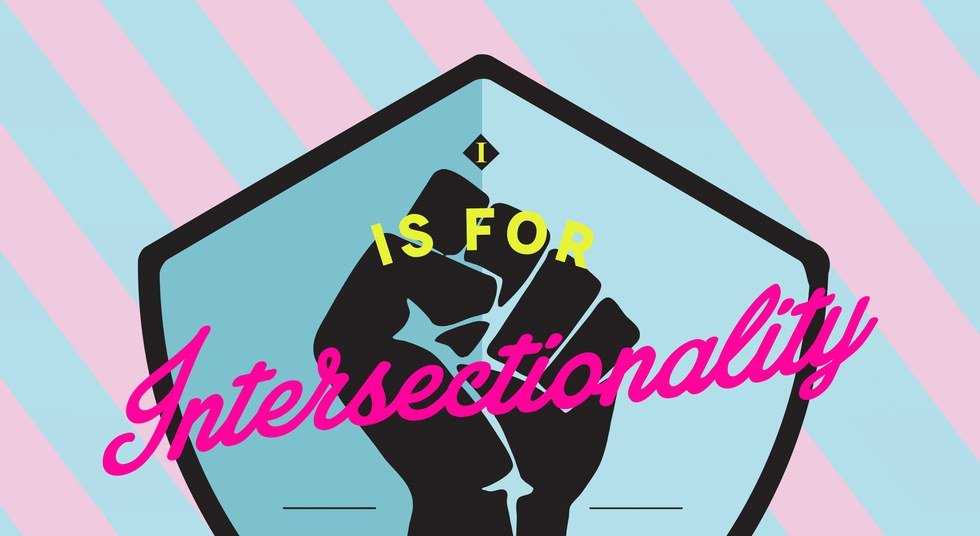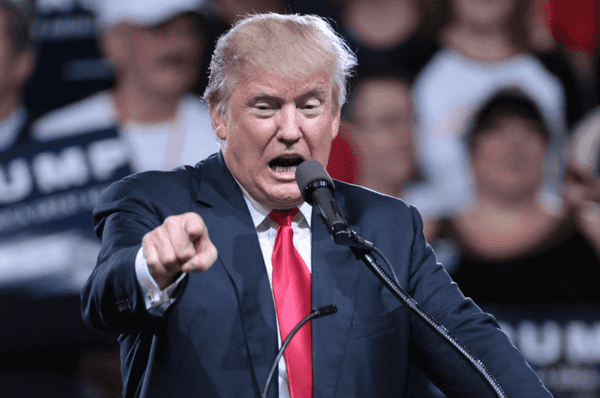Intersectional feminism is unbelievably, unequivocally and undeniably fundamental to the fight of obtaining equality. It is non-negotiable, necessary, and yet many people do not know what intersectionality is, what it requires, or what good it does for all women.
So let's brush up on our inclusivity and re-examine the extents of our equality, shall we?
In 1989, Kimberlé Crenshaw coined the term “intersectionality,” and it is the observation that women experience oppression differently, in varying levels of severity, based upon race, sexuality, socioeconomic status, ability, and ethnicities. Do not forget all forms of oppression are linked, related and overlapped. Racism, homophobia, sexism: discrimination is not exclusive or isolated.
Intersectional feminism acknowledges that we are women and not the singular “woman,” that we are not all one race, not all one gender, not all one class, and we all face different types of discrimination based upon our identities. And since there are different types of discrimination, this indicates that there are also different types of privilege that are associated with each identifying characteristic (yes, women also have privilege), or a lack thereof, and this is where our issues arise. With varying levels of privilege comes varying levels of power and influence, and because of this, feminism today often repeats an interminable history of exclusion and focuses on the issues of white, middle-class, cisgender women. This focus is called “white feminism.”
It is important to acknowledge that when I discuss “white feminism,” I am not invalidating the issues of white women. White feminism is not feminism, it is a warped and narrow view of what issues plague the women of today. You are not a “white feminist” if you are a white, cisgender woman, you are a “white feminist” if your feminism only benefits white, cisgender women. The importance that comes with intersectionality is that we acknowledge, observe, and correct how "popular" feminism today focuses almost completely on issues that do not affect all women, making it seem as though the problems of the white woman are the only issues of all woman. White feminism excludes any “minority” group from the discussion of and fight for gender equality, and trivializes or ignores issues that do not affect white women.
Women of color face enormous and violent forms of prejudice that do not affect white women because of the privilege that racism associates with skin color. Women of minority religions are treated with intolerances, misunderstandings, and ignorances that Christian women will not face because of the widespread popularity and privileges that accompany the participation in a widely tolerated religion. Cisgender women have a privilege that prevents them from receiving the same bigotries or violence that trans women, gender fluid women, or gay women are treated with. Women succeeding with disabilities are not as privileged in our society as women who are without disabilities. And of course, more money means more privilege. But, because white, cis women of moderate socioeconomic status are often in possession of the most privilege and therefore power, and because people often forget or do not know to check and understand their privilege, the issues of women of color, women of differing classes, women of minority religions, are ignored.
When these issues are finally addressed, we see white feminism when white women speak "for" women of color, and cis women speak "for" gender-fluid women. This is yet another form of discrimination; instead of letting others speak, white feminism takes these issues and influences them, so that the issues of white feminism are yet again commandeering the conversations of racism, homophobia and sexism. Remember when “freeing those poor Muslim women from the prison of the hijab” was a "big deal?" White feminist culture didn’t stop to ask Muslim women about how they actually felt about their clothing or culture and just assumed that since in the western world, free women do not cover their heads, to wear a veil was a form of oppression and that Muslim women were powerless. Another example of white feminism occurs when people talk about sexual assault with one blanket statistic about how many women experience some form of sexual violence.
Yes, between 30-50 percent of women will experience some type of violence or harassment, but we cannot stop the statistics there. It is important to mention and advocate for bisexual women when it comes to sexual assault awareness because bisexual women are more likely to experience sexual violence. Or how about the inclusion of statistics on what percentage women of color experience sexual violence or harassment? White feminism does not acknowledge the racism that often drives the sexual assault of women of color and instead focuses only on the ingrained sexism that contributes to sexual violence. White feminism prevents the destruction of ingrained inequality because it ignores the relationship between sexism and racism and other forms of oppression and forgets that all types of oppression are linked. You cannot expect to eradicate one type of prejudice if you discount the rest.
So, to ensure intersectionality replaces this focus on just one type of woman, we need to do a great many things. Just to repeat a few ideas that have been proposed and reiterated countless times by Crenshaw, by Dzodan, by Lorde -- we need to stop expecting one woman of color to speak for all women of color, we need to stop thinking that one gay woman can speak for all women of non-binary genders or sexualities.
We don’t expect one white woman to speak for all white women, so let’s stop assuming that all other women are the same and have the same issues and needs. We need to understand that listening solely to voices of white women speak about racism is, in fact, racism and instead listen to women who have experienced and still experience such discrimination. We need to stop allowing cis women to speak for women of different genders and sexualities and instead let the women who constantly face said violence and ignorance share their stories that we continue to invalidate by refusing them prioritization or promotion. We need to have conversations that include all women, not conversations with a select type of women that talks about all women and their obstacles. And of course, we need to help our society see that white feminism is discrimination, we must take the time to understand our privileges and evaluate the "equality" that our society promotes.





















